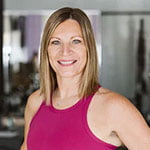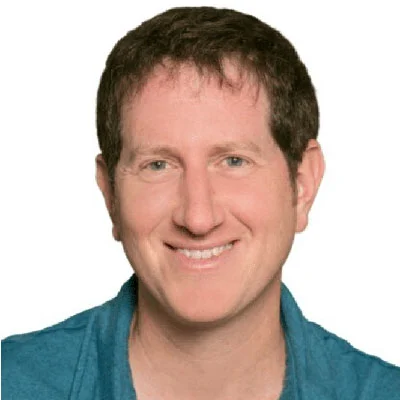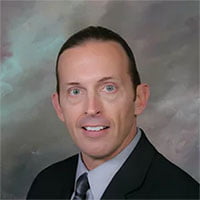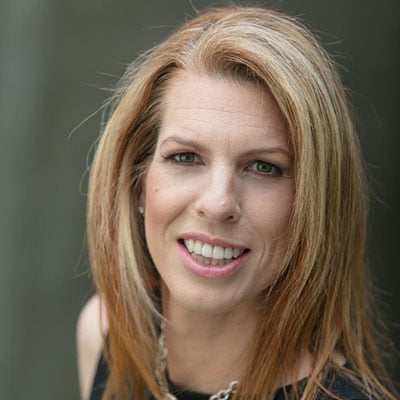Kevin Stafford 0:00
Hello, everyone, and welcome to another episode of the conversations with coaches podcast. I’m your host, Kevin and I have had the pleasure and I’m having the pleasure of meeting and getting to introduce to you, Chris is Skander. Chris is, first of all, in my opinion, great. I immediately I, I couldn’t tell you exactly why. But I immediately just wanted to talk to him about life, something about his energy, which I think you’ll pick up on very shortly. Let me tell you a little bit about Chris. He’s a seasoned technology professional, who spent 13 years at a high growth tech startup, which grew into a world leading organization and ultimately provided a successful exit for himself and the other shareholders. Chris is also now a skilled executive and team coach to C suite executives, leaders and high potential employees, primarily in the tech space. But I imagine you go where the opportunities present themselves. So, Chris, it’s great to meet you. It’s great to talk with you. And it’s great to introduce you to my audience. And I’m excited to have a conversation today.
Chris Iskander 0:54
Likewise, thanks for having me.
Kevin Stafford 0:56
Well, let’s jump right in and go all the way back to the beginning, not the beginning, beginning we don’t have to go back to you know, born and you know, Topeka, Kansas, and you know, whatever. But back to your your origins, your superhero origin as a coach, how did you? How did you realize discover stumble into kind of already learned and started taking action on being a coach? How did you figure out that that was the way in which you wanted to impact the world around you?
Chris Iskander 1:24
Yeah, it’s a great question. It goes back to my early or mid 20s. And so I’m an engineer by training. And up until that point, in my life, I was very much kind of your typical engineer, super left brain, very analytical, cerebral, lived almost entirely in my head. But if you told me that, at the time, I wouldn’t have known what you meant. I would have asked like, Where else would I be? Of course, I’m in my head. What does that even mean? Right. And I was, I would have been quite arrogant and dismissive of anything that sounded like it was soft or fuzzy, or, you know, that’s like fluffy, not real science, like, leave me, like, give me that give me the map. But on the advice of a friend from from university, I took this weekend long personal development workshop, that just really opened my eyes, it kind of just blew the doors off. And I was confronted with a lot of my own blind spots, and hidden assumptions and beliefs that I’ve been operating from unconsciously. And I could just, it was like, I could see the matrix, all of a sudden, I saw how much of my worldview was really just my own construction. And I also saw, the way, I saw how the way that I constructed, it was impacting and limiting what I saw as possible for me how I showed up in relationships, you know, these all these interpersonal dynamics that I was, they were just not on my radar screen before. And it was like super impactful, and a really powerful experience for me. So I, I did a deep dive into this world of personal growth and discovery. And I saw how beneficial it was for myself and for others. And from that point on, kind of dreamed of one day carving out a career in that direction. But you know, fast forward, took me almost another 20 years to get there. Because in the meantime, building a tech startup, there was not really a straight line between that world, and the coaching realm. And we were also just working stupid hours, building the company. So there just wasn’t any time for anything else. But when the company sold back in 2018, I suddenly found myself with some time on my hands, and I had some financial flexibility. And so it was a perfect opportunity to pivot. And so that’s what I did. I took a bunch of formal coach training programs and kind of threw myself fully into the world of coaching. And that’s been my primary obsession ever since.
Kevin Stafford 3:53
I love I love that story because of how, how it describes both your specific coaching journey, but also the coaching journey, because there’s such a commonality to it, where there’s a point, typically early on that you can now in hindsight, you can identify with crystal clarity, maybe even knew it perfectly in that moment. And then the timing wasn’t right, or there were just other things that needed their attention or other opportunities that you know, wanted to be pursued and your head in your heart. And then you eventually come back around to a moment where the opportunity re presents itself in a way where you’re like, hey, wait a minute, I still have that passion, I still have those thoughts and those feelings, I still see the value. And the opportunities here I always had the motive. I’m not I don’t mean to frame it like a crime, but I always had the motive and the method and now I have the opportunity. It’s all come together. And then the moment you have that realization that everything aligns, you find yourself immediately moving forward and all of a sudden you have this momentum and it begins to carry you and it’s it’s very borderline intoxicating the way that it really catches fire once once everything lines up like that.
Chris Iskander 4:53
Yeah, abs232-233olutely. And you know, the other thing looking back on it is a much more effective Coach having had those 20 years of life experience in between and, you know, the struggles and the challenges and just the exposure to kind of just the frustrations of the world, you know, 20 years later, I like to think that I learned a few things along the way. And, you know, is a is a an interview, I think with Muhammad Ali, where somebody is challenging him for being kind of old, late in the game. And he’s like, Yeah, but I’ve also like, I’m battle hardened. I’ve had my jaw broken a few times, I’ve been beaten up, and like, Here I am, right, I’ve got, I’ve got that grit that he was positioning as a strength. And I think something similar applies here.
Kevin Stafford 5:38
Yeah, you’re, I feel like you identified this early on to like looking back at your, your, your early mindset as like a very left brained engineer type, and how you kind of like as you grew up, you eventually find yourself almost like in like default settings, like the default settings for Chris a default settings for Kevin. And then you kind of just operate under those default settings as if they are the settings like it is the way things are done, just kind of development works. And then at some point, given the opportunity, hopefully early on in our lives, for some people, it takes a little bit longer, but I welcome all the Late Bloomers as, as one myself, you had this realization that wait a minute, these are sandbox settings to kind of borrow a term where it’s like, oh, I can, I can actually really, I could change most of this, or I could do most of this a little bit differently, maybe dramatically differently. And you can begin to see other people doing things and moving around the world very differently from you, and still having similar kinds of success. And you find yourself admiring and respecting them. And then you begin to realize, oh, there’s all sorts of different things that I can do all sorts of different ways that I can see and all sorts of different ways that other people can see I should build some bridges to them, and find out what we can do together. And then, you know, this is the rosiest of outlooks on being as I have all of my optimism glasses on. It’s like and you move forward together, and you make each other better. And you know, everybody lives happily ever after. It’s the dream anyway.
Chris Iskander 7:01
Yeah, there’s definitely something to what you’re saying about default settings, and kind of upgrading the default settings, and also just adding a few more tools into the toolkit. You know, and I think this shows up a lot in my coaching work with clients is a lot of what we explore is different ways of being that might be different from their their normal, automatic ways of being in a given situation, and just kind of broadening their repertoire. And realizing well, I’ve got some choice about how I show up here. Like if I’m naturally a people pleaser, and I shy away from conflict, well, it doesn’t have to be that way. Like, I’ve got other options, I can be more assertive. And then I try not to have a bias about the choices a person makes. But if I want to give them more choice, I want them to have things to choose from, and to make that choice with eyes wide open. So I like to say that I’m not attached to the content of your choice, but I do have a bias about the quality of it.
Kevin Stafford 8:00
Very well said very well said. Yeah, I was thinking in terms of just creating optionality and providing guidance, where it’s like opening up some awareness. And then also, I feel like that’s one of the things that makes coaching coaching special and very unique and powerful, especially now. But I think it’s been this way for a while, is that ability to open up people’s eyes or help them to realize certain things about themselves about the industry they want to work and thrive in, but the world around them and the world they live in, and setting up those options in such a way and providing some guidance, but not a prescription, just like hey, these are your options, here’s kind of how I’m seeing it through your eyes, here’s how I would see it through mine, here’s how you can go forward together, here’s a little bit of plan a little bit of a framework because coaches always always bring the tactics as well as the strategy and then empowering that person the coachee to make those choices and take those steps and I find it to be such a powerful alchemy of all sorts of different things that I feel like we’re you know, I’m not gonna say that we’re missing once we move into our adulthood once we move later on into life but I often find myself thinking about coaching as almost like a continuing education where it’s like you get all of this formal and informal education you just dumped on for for decades, the beginning of your life and you get to a certain point and you’re you know, more or less cut loose to be like Okay, here we go. It’s like well, I could still there’s still a lot for me to learn and I still would like some you know, some constructive educational ways to learn them and some some mentors and some teachers and some leaders to guide me and I feel like coaches not to blow smoke up your butt but coaches like you who have that mentality that approach are just so so valuable especially in in leadership positions.
Chris Iskander 9:36
I kind of Yeah,
Kevin Stafford 9:38
I think so too. And so I kind of want I both want to keep talking like 30,000 foot concept but I want to dive into into your coaching today. So I want to talk a little bit about about who you are and what you do and how you do it so it’s gonna sound like almost like an interrogation like I’ve got I’ve got you in the in the interrogation room like what did you know and when did you know it? But I like to ask this as a two part question because I feel like it gets at the the nuts and bolts of a lot of coaching practices. Who do you coach? And how do you coach them? Who being primarily if it’s certain industries, obviously in tech, certain levels, certain, you know, demographics. So basically the WHO there and also the How are you primarily or at least or at least partly one to one coaching? Obviously, a lot of coaching starts there. Do you do any group or team coaching? Do you have any, like keynote speeches that you present or masterminds that you run? Are you or have you written a book? So it’s always something that’s either like, on the horizon or already done? Or it’s like a here’s the here’s the Amazon link. So yeah, basically, who do you coach? And how do you coach them today? What was that look like?
Chris Iskander 10:41
Yeah, so I work with leaders primarily in the tech space. That’s a fairly broad arena. So in the startup space, it’s, you know, founders, co founders, that sort of thing. And then for larger companies, people in leadership positions, you know, at different levels in the hierarchy, I find often the sweet spot for me is people who are kind of mid career, sort of Gen Xers like myself, who are already quite accomplished, but are running up against this experience of like, I’m realizing that what got me here won’t get me there to the next level, whatever that is for them. And, you know, they’re still fun to work with, because they’re just already accomplished really bright, and are just aware of the fact that there’s something there in their own way, in some capacity, there’s some blind spot or something that’s like, that they keep bumping up against, and it’s been, it’s happened enough now that it’s a pattern and they’re like, Alright, I need to, I need to crack this nut. And so most of the work I do is one on one, and I find it super rewarding. But I also do team coaching. And usually the way that starts is working with an executive or a senior leader, one on one, and then they say, Hey, you know what, like, I can see the benefit of bringing in a coach to work with my leadership team. And as impactful as one on one coaching is with a leader, when you get the whole leadership team together and can give them a common vocabulary, a common set of mental models and frameworks, and then get them communicating with one another through that lens like you can really supercharge the effectiveness of, of a team. And then if it’s a senior team, it it permeates through the organization.
Kevin Stafford 12:25
It’s very, it’s very, obviously, I hesitate to use this word due to, you know, recent global situations, but it’s very contagious. But it’s kind of contagious. And it very much, it reminds me a lot of that sort of classic parable of more or less, teach someone or give someone a fish, and they’ll eat for a day, teach someone to fish in the lead for a lifetime. I love that when you when you get the team the leadership team together. And you get them love that you call this out speaking the same language using the same vocabulary. So they understand each other and express themselves to each other better. And they start to coach each other. And you start to like that moment. It’s different, but no less powerful than that one to one moment, when you can see the spark, go on the light go on behind someone’s eyes, and they realize exactly what they were suspecting but couldn’t quite put their finger on, when you see the team start to basically coach themselves. And they’re saying things that you would say in their place, but they’re saying it to each other. It just like it just it’s just beautiful. I don’t know, it’s I, I almost hesitate to use the word magical, but sometimes just being present for that and seeing the seeing that work pay off. It’s just there’s just nothing like it. It’s really, it’s really great. It’s just fantastic.
Chris Iskander 13:34
I completely agree. Yeah, and it’s a couple of components to what you said there. I think one of them is just having a label or a name to put on some of these common experiences that we all have, but maybe hadn’t quite articulated. And so unpacking it and making it explicit, and then putting a label on it. And now they can now they’ve got a term to use to describe that thing. Like I remember the first time I heard the word gaslighting, and I’m like, yes, I’ve experienced this, I’m so glad there’s a word for that. And there are so many other common experiences we’ve all had, especially working on teams that we don’t necessarily have labels for. So being able to give people a vocabulary to talk about these things is super powerful. And then the other piece of it is making explicit a lot of the assumptions that we bring to the table when collaborating with others that are often just kept implicit. And when we have different implicit assumptions that we’ve never actually talked about, that’s where you can get some friction. And you don’t necessarily know where the friction comes from, or why is it? Why is this happening? And so getting a set of working agreements upfront, for example, how will we hold each other accountable? If we make agreements with each other, like a lot of collaborating is making requests and promises. And so let’s when we go about the business of doing that, what happens when one of us fails to fulfill our promise, how should we hold each other accountable and getting agreement around that explicitly upfront? When the time comes, you know what to do. And the other person also knows how to receive it, because you’ve agreed that this will be how we handle that and how we communicate about it. And there’s an explicit bias. So it eliminates and gets out in front of any sense of defensiveness or dysfunction that might otherwise have come up. And you know, there’s dozens of examples like that. But it’s a lot of fun, and super impactful to just armed people with awareness of these things in a way to navigate them.
Kevin Stafford 15:29
Ya know, I love because, again, again, you’re you’re bringing the concept into execution into action into the lights, like, how do we hold each other accountable? That’s not a rhetorical question. About what do we do it? How do we do it, and I love your emphasis on the agreement, because obviously, you can settle on all manner of accountability consequences, and you know, this XYZ happens, it’s the agreement itself between the parties, that binds the accountability and creates the relationship and allows that sort of trust to be built and grow. And I find that to be so. And again, you lay it out like that. And it’s, it seems relatively, like common sense, like, Oh, of course, that’s, you know, that’s the stock and trade of human relationships. And yet, it can be really easy to lose sight of it, especially when you’ve got all these other responsibilities. And you’re trying to manage a team or you’re a part of a team, there’s just so many different cul de sacs that you can get lost down dead ends and having a coach come in and really does lay it out simply and powerfully. And then commend everyone guide everyone to the work. That’s just I mean, yes, it may be common sense, but it is powerful sense.
Chris Iskander 16:38
Well, common sense, but it’s not common practice.
Kevin Stafford 16:41
That’s it. That’s the phrase again, well spoken. Oh, man, I could do this all day with you. This is so great. I think I was one other something that you said, you said a number of things. I kind of like wanted to jump all over. But I think what I’m going to ask I’m gonna ask you what am i Little closing questions while I let my brain kind of noodle on some of the stuff you said, I may just have to have you on for a part two, because I would love to both get deeper into the tactics side of things, and also talk about strategy and concepts and inspiration and passion, feel like I could do either of those all day with you. I have a party for you. Where can people find out more about you, if they want to know more about you as the person you as the coach? Just learn more about who you are, what you do, how you do it, et cetera? Where can they find that stuff out? And if it’s different, where could they best connect with you if they wanted to, like have a chemistry call with you? Or you know, hook up to a newsletter? Or like just each of the email you should they you know, fill out a form? How can they best connect with you DM you on LinkedIn. And that’s that’s a very good place to build relationships now. So yeah, where can people connect with you and find out more about you?
Chris Iskander 17:45
Yeah, a couple of options. LinkedIn is one easy place to find me. I do check it every, maybe not every day. But you know, multiple times a week, I’ll check in and see what’s there. So that’s one option. The other option is my website, which is executive soundboard, oh, one word.com. And there’s some information there standard bio, and that sort of thing. And there’s also a link to my calendar, if you want to book an initial consult, you can do it right on the website.
Kevin Stafford 18:14
Nice, easy, I love it when you make it easy, easy to begin once, once you realize that necessity of coaching, making it easy to begin is important because the work will be hard and will be fruitful, I think I think that might was one of the other points too, that you were kind of not really hinting at, but you were definitely speaking into it, how the getting into it, the realization once you’ve arrived at the realization, it’s like something, something’s off, I might be the problem. Yeah, you have the beginnings of an awareness, but you need someone to come in and help you almost like an archaeologist come in with the brush. And, you know, take the dust off of it and kind of like bring it out of the dirt and like bring and bring it into light, you know, and that beginner’s awareness, I feel like it’s so key, and also just embracing the fact that this is gonna get, there’s gonna be some friction inside yourself amongst your team, it’s going to get a little challenging, it’s going to be a little difficult. Sometimes it’s not always going to go smoothly, but it is always going to go in the right direction. And it is always going to be trending the way you want it to go. And it is always going to be building and growing. And it’s, it’s something that I find a coach to be so well positioned to provide. Because there is a real intimacy in your relationship with a coach you traffic and handle some pretty heavy stuff, professional and personal, it’s natural that it comes out that way. So you have that that capacity for intimacy and empathy. And you also have the distance that I am, I am a coach, I am a professional. I have the skill set and I’m coming in from outside I am bringing none of your baggage with me. I’m coming in clean, and that gives you such such power to be able to affect positive change inside of an individual and in a team I just said that’s not really a question. There’s just something as you were speaking that began to rise in my Mind and I wanted to make sure I got it out.
Chris Iskander 20:02
Yeah, I think that part of what makes coaching such an effective modality is exactly what you’re pointing to the clarity of distance. I like to say, it’s tough to read the label from inside the bottle.
Kevin Stafford 20:15
Man, if you’ve got two gyms, you dropped at least like three or four gems in a matter of 20 minutes. I’m loving this, I’m definitely gonna have you back on. It’s been fun. Oh, well, yeah, Chris, thank you so much for your time. And for actually really nice to get to know you and get to know that you exist. You’re one of those people I, I find this is very, a relatively common experience for me doing this podcast, I’m talking to coaches. And so you know, intelligent, passionate people who really love what they do and are out there to help the world and to and to grow together. It’s like, obviously, it’s I’m gonna have a great time conversing with people like that. But you especially really feel I feel better about I was already feeling pretty good. And you kind of made my day. So thank you for that. And I’m kind of blowing smoke up your butt. But really, it really didn’t make my day and kind of raised the level of my of my head and my heart just by being yourself. So thank you for that.
Chris Iskander 21:06
Well, thank you so much for having me. It’s been a pleasure. Good, good,
Kevin Stafford 21:09
good, good. And hey to the audience, you know what to do next links will be in the show notes, obviously, Chris’s name and his the spelling of his last name, which is not difficult, but you could probably stumble on that if you want to easy to find on LinkedIn, easy to find on his website, the links will be in the show notes. Do yourself a favor, get to know Chris in whatever capacity you can. He’s the real deal. And we’ll talk to him again very soon and I will get a chance to talk to you again very soon. So thank you












